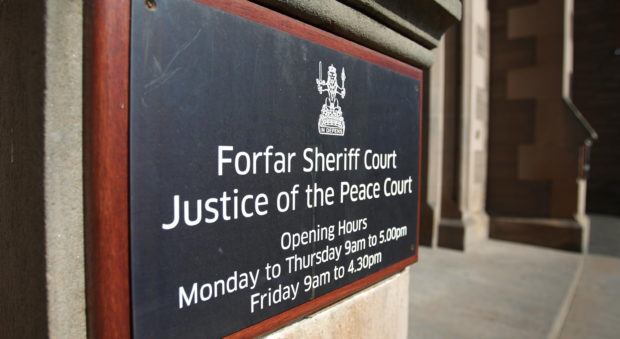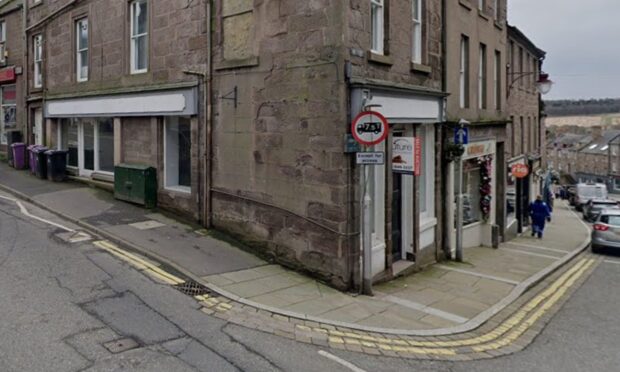A senior lawyer has taken aim at colleagues for breaking ranks in a mass Angus boycott over extra police station duties.
Mike Ferrie, Dean of the Society of Procurators and Solicitors of Angus, said it was an issue which “required total support and trust between Angus firms” for the embargo to work.
But the ‘picket line’ was breached just weeks after the new legislation came into force in January when two criminal law firms broke ranks and enlisted in the scheme which Mr Ferrie said was a “surprising and unexpected decision”.
That has now led to the remainder of criminal practitioners making a snap decision to reapply to the scheme forthwith.
Mr Ferrie described the U-turn as “a huge disappointment and something of an embarrassment” and questioned the “fragile resolve of certain of our local practitioners”.
He said the others who eventually followed suit were “extremely unhappy” at being placed in this position but were left with no choice.
The new legislation entitles anyone in custody to legal advice and not just those who are being interviewed by police.
The revised police station duty scheme was triggered by a 2010 UK Supreme Court ruling which found it was a breach of an accused’s human rights to deny them access to a solicitor during a police interview.
However, a wave of lawyers have opted out of the scheme across Scotland, including solicitors who are part of Aberdeen, Dundee, Edinburgh and Glasgow local law faculties.
Mr Ferrie said: “I have no desire to raise conjecture as to the reasons why this circumstance has arisen but I am afraid others may do so, especially practitioners from neighbouring faculties and societies who have withdrawn from the scheme and who will observe the situation in Angus with increasing interest and no little incredulity.
“For the avoidance of doubt, it firmly remains my view as Dean of the Society of Procurators and Solicitors of Angus that all of our criminal practitioners should still consider withdrawing from the scheme and I strongly urge them to do so.
“I have already publicly stated the society’s position which I believe to be correct and principled and in line with the views of many societies from neighbouring jurisdictions and across Scotland, so I need say no more about that.
“It is also important for me to point out that certain Angus practitioners I have spoken with are extremely unhappy at the prospect of now having to reapply for the scheme.
“I completely understand their reasons for doing so and they will certainly not receive any criticism from me or from the society for finding themselves in the position of having to do so.
“As Dean, it is a huge disappointment and something of an embarrassment that our relatively modest number of criminal practitioners cannot stand together on such an important issue for the profession as a whole, whereas much larger faculties with much more complex dynamics such as Dundee, Aberdeen, Edinburgh and Glasgow seem to be able to stand firm.”
The Scottish Legal Aid Board, which will manage the new scheme, said it understands the concerns some solicitors have about managing requests for advice in police stations alongside the other demands of running their businesses.
They previously expected that solicitors on the duty plan for the Forfar Sheriff Court district would be asked to attend once a week if they were part of the new arrangements.










